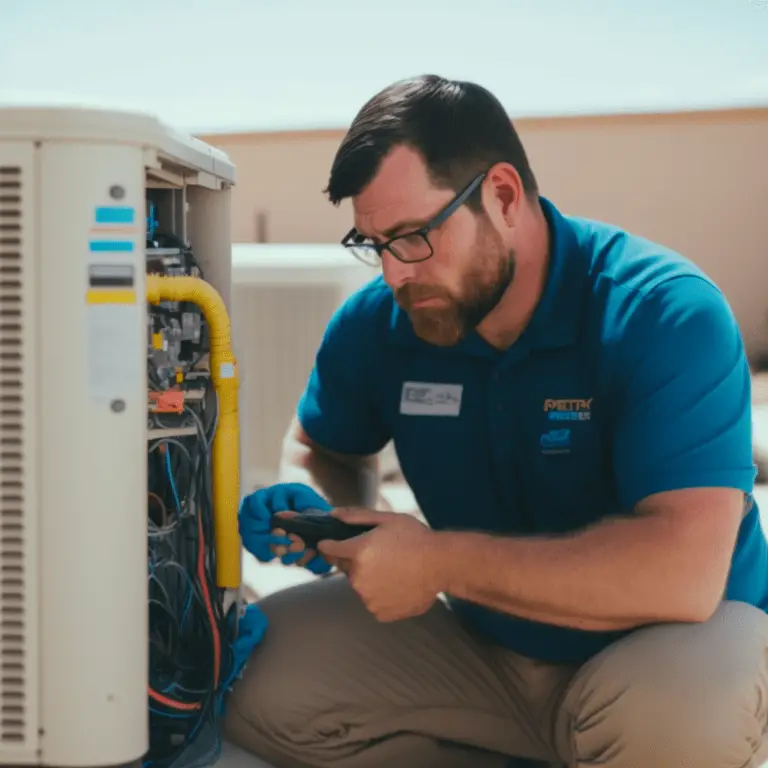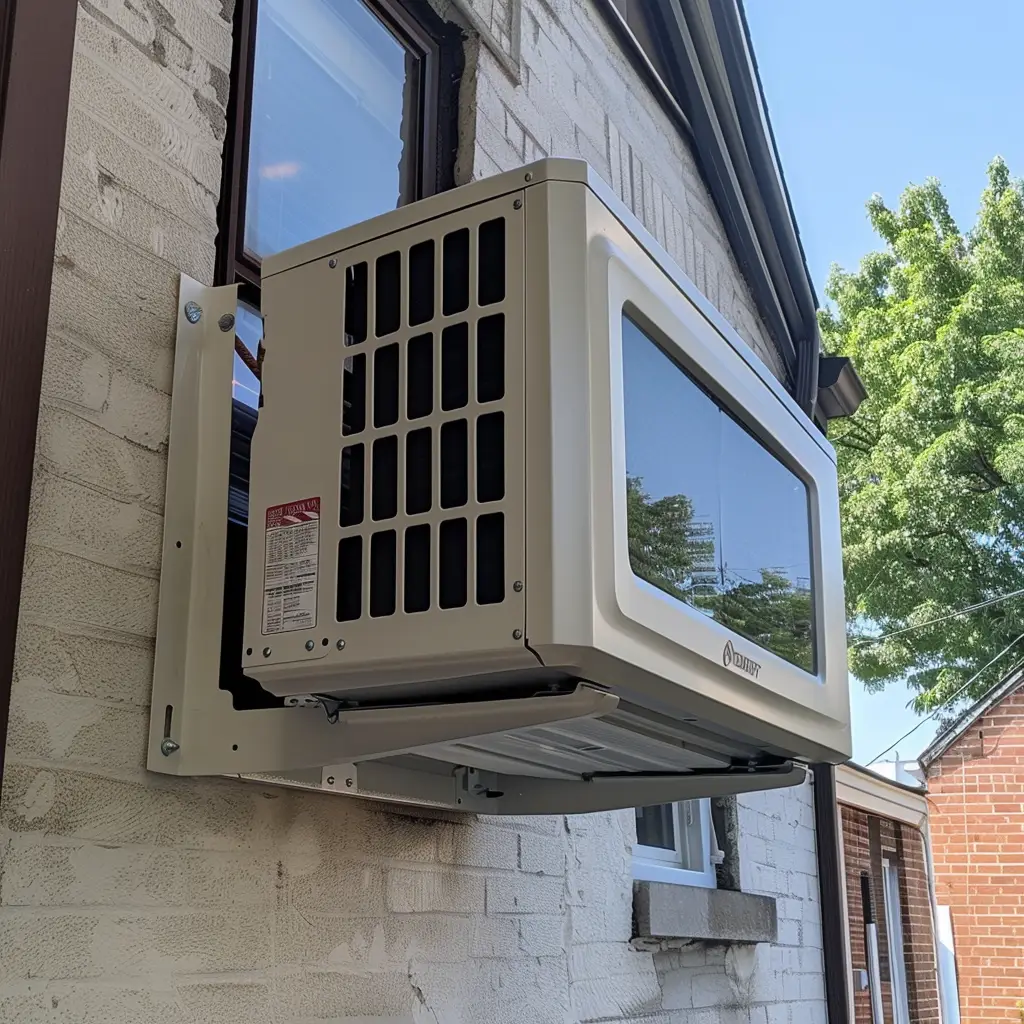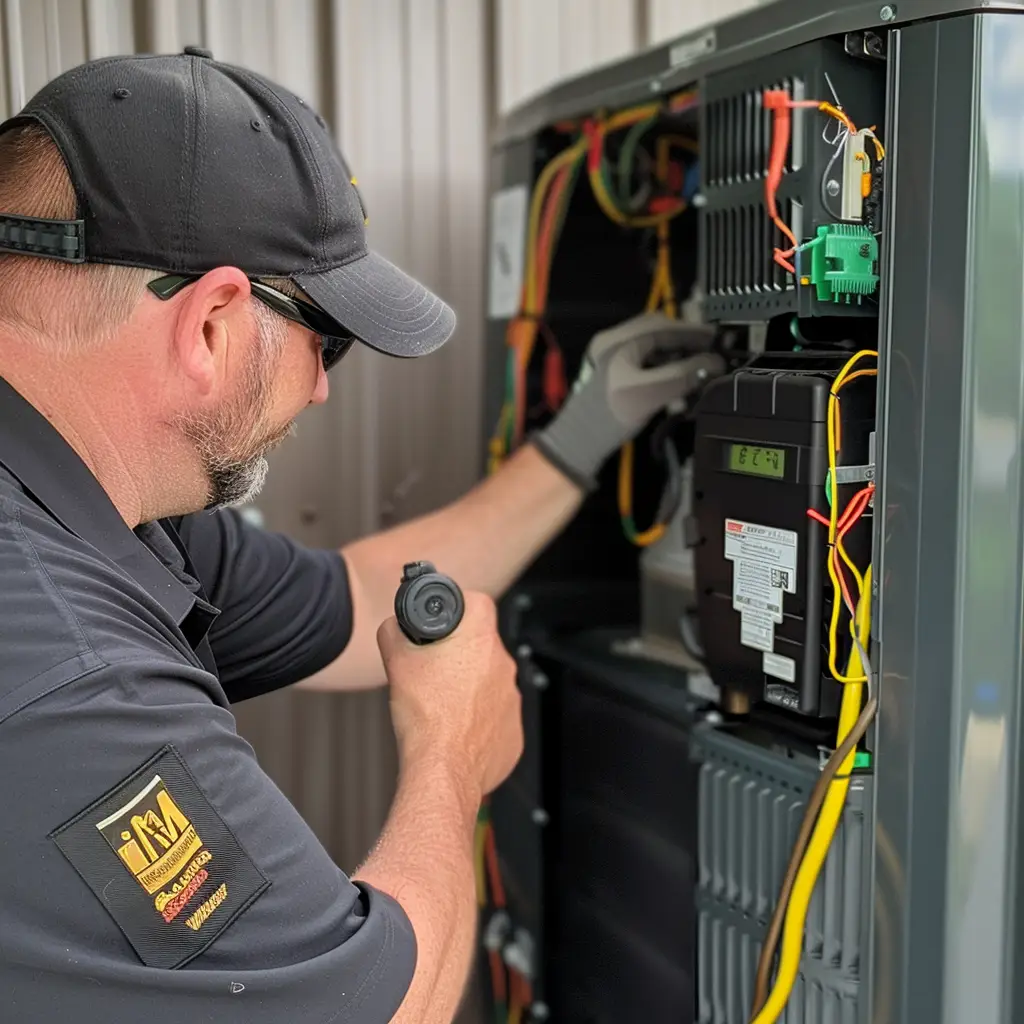As a homeowner in Toronto, you may be in the market for a new heating system. One option you may have come across is the heat pump. While many homeowners may be unfamiliar with this type of HVAC equipment, heat pumps have been used for residential heating and cooling for over 50 years and have become even more energy-efficient over time.
In this blog post, we’ll explore the pros and cons of replacing your furnace with a heat pump and help you decide if it’s the right choice for your home.
What is a Heat Pump?
A heat pump is an HVAC system that uses electricity to transfer heat from the air or ground into your home. It works similarly to an air conditioner, but can also provide heat during the colder months. This means that a heat pump can both heat and cool your home, making it a versatile option.
Pros of Replacing Your Furnace with a Heat Pump:
Energy Efficiency
Heat pumps use a process called “heat exchange” to transfer heat from the air or ground into your home, rather than generating heat through combustion like a furnace. This means that heat pumps are much more energy efficient, as they don’t have to create heat from scratch. This can lead to significant savings on your energy bills over time
Versatility
Unlike furnaces, which are only able to provide heat, heat pumps can also cool your home in the summer. This means that you’ll only need one system to keep your home comfortable year-round, rather than having to switch between a furnace and air conditioner.
Long Lifespan
Heat pumps are known for their long lifespan, typically lasting between 15 and 20 years. This makes them a great investment for homeowners who want to keep their HVAC system for a long time.
Safe and Greener Alternative
Heat pumps are a more energy-efficient, safe, and environmentally-friendly alternative to furnaces that use gas and oil. Because they run on electricity, they don’t create the harmful byproducts that come with combustion (burning gas or oil). This means you don’t have to worry about carbon monoxide or exhaust leaks worsening your indoor air quality.
Cons of Replacing Your Furnace with a Heat Pump:
Cold Climate Limitations
Heat pumps work best in moderate climates. They may struggle to heat homes in areas where the temperature routinely drops below freezing. In colder climates, like Toronto, you may need to equip your heat pump with electric or gas burners to provide supplemental heat.
High Initial Cost
Installing a heat pump requires a significant upfront investment. The total cost of retrofitting an existing home can range from $5,000 to $10,000, several times more than a gas furnace. However, it’s important to consider the long-term savings on energy bills and the potential for incentives and rebates to offset the initial cost.
Dependence on Electricity
Heat pumps run on electricity, meaning that if there is a power outage, your heating system will be affected. This can be problematic during winter storms, which are common in Toronto.
Limited Payback Period
According to research from Schneider Electric, replacing a gas furnace with a heat pump may not result in a payback period for the consumer or business. The payback period for replacing an oil furnace with a heat pump is only within five years.
The Benefits of Combining a Heat Pump with Your Existing Furnace
Can You Use a Heat Pump with a Furnace?
A heat pump and furnace can be combined to create a dual fuel system for increased efficiency. This setup can provide a backup heat source in case of technical difficulties or extremely cold temperatures. The heat pump can also act as an air conditioner in the summer while the furnace remains as the primary source of heat. Installation is easy as the heat pump can be connected to the same ductwork as the furnace or a ductless mini-split heat pump can be installed without the need for ducts.
Is a Furnace Necessary with a Heat Pump?
Having a furnace with a heat pump is not a requirement but can offer some advantages. In cold climates, it is more energy efficient to heat the home with a furnace and use the heat pump for cooling. Heat pumps can become less efficient in extreme cold temperatures, so having a furnace as a backup can be beneficial. Another option is to have heat strips as a backup, although they can be expensive to run.
Cost is another important factor to consider when deciding whether or not to include a furnace when switching over to heat pumps. If your existing furnace is relatively new and in good condition, you may be able to keep it and save money. However, if it’s older and not efficient, replacing the furnace with a heat pump may be more cost-effective in the long run. It’s important to consult with a professional HVAC technician to determine the best option for your specific situation and to ensure optimal performance and energy efficiency.
How Does a Heat Pump Work with a Furnace?
A dual heating system that combines a heat pump and furnace allows for the use of both electricity and fuel to maximize efficiency. The concept of energy efficiency is optimized by using and conserving energy more effectively, resulting in cost savings.
A smart thermostat controls the system and switches between the electric heat pump and gas furnace as temperatures fluctuate. There are two options for installation, either a split system with separate heat pump and furnace components or a dual-fuel HVAC system that includes both in a single unit. This allows for a flexible and efficient heating system that can adapt to different weather conditions and temperature changes.
Considerations for Toronto Homeowners before buying heat pump:
- Climate: It’s important to consider the climate in Toronto before deciding to replace your furnace with a heat pump. While heat pumps can work in most cold climates, they may struggle to heat homes in areas where the temperature routinely drops below freezing.
- Incentives and Rebates: Homeowners in Toronto should research available incentives and rebates offered by the government and utility companies to offset the cost of installing a heat pump.
- Energy Prices: The cost of electricity in Toronto should also be considered when deciding whether to replace your furnace with a heat pump. If electricity prices are high, it may not be the most cost-effective option.
In conclusion, when considering whether to keep your existing furnace or replace it with a heat pump, it’s important to take into account various factors such as energy efficiency, cost, and the age and condition of your furnace.
For the best advice and service in Toronto, we recommend contacting Airpoint, a professional HVAC company. They can help determine the best option for your specific situation and ensure optimal performance and energy efficiency. Whether you’re looking to upgrade your existing furnace or install a new heat pump, Airpoint has the knowledge and expertise to guide you through the process and ensure that your home is comfortable and energy efficient.
Contact Airpoint today to schedule a consultation and learn more about your options for upgrading your heating system. They can help you understand the benefits and drawbacks of each option and recommend the best course of action for your home and budget. Don’t hesitate, contact Airpoint today and start enjoying a more comfortable and energy-efficient home.
How AirPoint Can Help
In conclusion, when it comes to upgrading your heating system, it’s important to take into account various factors such as energy efficiency, cost, and the age and condition of your furnace. At Airpoint, we understand the importance of maintaining a comfortable and energy-efficient home, which is why we offer professional HVAC services to homeowners in Toronto. We can help you determine the best option for your specific situation and ensure optimal performance and energy efficiency.
Whether you’re looking to upgrade your existing furnace or install a new heat pump, we have the knowledge and expertise to guide you through the process. Our team of experienced technicians will work with you to understand the benefits and drawbacks of each option and recommend the best course of action for your home and budget.
Don’t hesitate, contact Airpoint today to schedule a consultation and learn more about your options for upgrading your heating system. We are here to help you enjoy a more comfortable and energy-efficient home.





